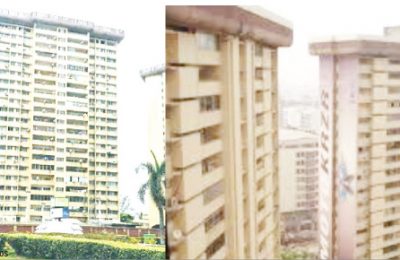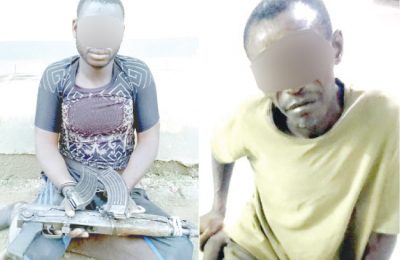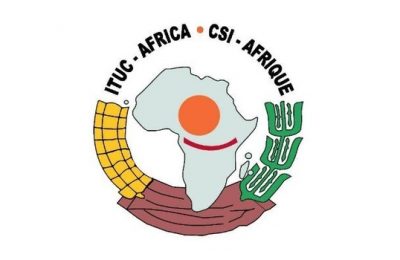
WHENEVER the Democratic Republic of the Congo (DRC) is mentioned, two things come to mind- the first is goldmine and glory, and the second is complete, protracted, and intractable chaos. Congo-Kinshasa, from its unenviable era of being the personal estate of the evil King Leopold II, whose murderous rage left over 10 million hapless people dead and several million others handicapped by amputations or limb severance, through a brutish colonial control, to its current rudderless and unstable leadership since 1960, has not known a moment of peace or tangible development. Although its soil boasts the most strategic resources that have defined human and global transitions for foreign powers outside Africa to an age of the exotics, the DRC, like most of Africa remains in abject squalor. It is orphaned by a monumental loss, misuse, and overexploitation of its resources in the hands of a few external actors and their unthinking internal collaborators, leaving only the crumbs left of its national revenue for a population of 109,276,265.
Congo has everything the world needs and that can make it the wealthiest nation on earth. Crude oil. Gold. Copper. Diamond. Cobalt. Coltan. Lithium. Chromium. Platinum. Name it. Congo has it all. It is the largest producer of cobalt, and its production of coltan is one of the most significant in the world. However, despite its annual revenue of $69.474 billion, most of which comes from copper and cobalt, neither the cities, towns, infrastructure, nor the per capita income reflects these enormous national fortunes. From Dictator Mobutu, to his successors, including powerdrunk Kabila I and II, and Bigman Tshisekedi, it has been a long story of one incompetence or corruption too many. Congo’s problem is not limited to the incompetence or greed of its leaders. It extends to the endless conflicts and violence in its eastern region, particularly North Kivu, South Kivu, and Ituri. These other territories have witnessed perpetual armed conflict and violence, which have resulted in widespread displacement and a severe humanitarian situation.

The reasons for these endless conflicts are not far from the prognosis. This eastern part of DRC is a mineral-rich and natural resources-endowed place. All the resources highlighted above are located in this region. Goma in North Kivu, home to more than 1 million people and the country’s resource base, is the epicenter of the crisis. The second major reason is that there are too many hawks and groups with insidious activities and sinister ambitions lurking around this region, yet there are fortune-hunters and greedy cowboys locking horns to outdo one another and have the bigger grab of the numerous goldmines in this region. Aside from these, there are yet many vultures hanging around who do not mind scavenging from the leftovers.
The real problem with Eastern DRC lies in those two problems. Let us examine the second factor (groups with sinister motives) before the first, because of its Africa importance. After the Rwanda genocide against the Tutsi, those who led the war room for the organized crime of 1994 fled to eastern Congo and floated a ‘new Rwanda’ kingdom backed by the Mobutu and later Laurent Kabila government. This group of fugitives and renegades sought not only to return to Rwanda but alsoto resume the killings and re-establish their Hutu Power regime. Their primary goal was to re-own Rwanda by violent means, which, 31 years after, they have not given up. Yet, they have had a field day in eastern Congo all this time. This leaves their 1994 nemesis, the Rwandese Patriotic Front-led government with no choice but to critically weigh strategic options to prevent another carnage or threat to national sovereignty, secure the homeland, and seek stability in the neighborhood. To achieve these, the RPF must either work with their neighbors or find other means to nip the impending dangers in the bud. America would do the same, and in fact, Donald Trump believes that America is safer and stronger only when its neighbors are safe enough and dependable. This has defined his ‘America First’ agenda, which he has pursued with so much vigor since his assumption of office on January 20, 2025.
The northwestern borders of Rwanda have been under threat since 1994 because of Congo’s vulnerabilities along its northeastern borders, which it shares with Rwanda. The old foes are still active. The Democratic Forces for the Liberation of Rwanda (FDLR), the genocide-era Hutu Power armed group along with their foot soldiers, Interahamwe, started their carnage in the UN refugee camps and beyond just weeks after the genocide. Over the years, they have become more sophisticated, using eastern DRC as their base, and launching deadly attacks into Rwanda through Musanze and other Northern Rwanda hills, with the Congolese government at different times found wanting on all occasions and not taking responsibility.
When Rwanda opted to take strategic steps, including supporting Laurent Kabila to gain power in DRC to provide stability and a secure neighborhood, the move was later misunderstood as Rwanda’s ambitious foreign policy to seize control of Congo’s natural resources. In addition, this has been the narrative of successive presidents, who have sold this same story to their people and their friends in the international community. Funny enough, the international community, which is directly involved and the chief culprit in the pillaging, violence, and running of criminal gangs to loot all those resources, are the same people who are judging the matter and apportioning blame. They are certainly enjoying the single narrative that fellow Africans in the neighborhood are the cause of the chaos in eastern Congo. This suits their agenda. The additional twist that the March 23 Movement (M23), a Congolese Tutsi group, is being used by the Rwandan authorities to destabilize the region and scoop the resources, is the icing on the cake for the international players, who see a veritable distraction mode to launch deep into the Congolese mines. This is the tragedy of that single story, which has lingered for too long. No wonder, no answer or solution has been in sight. Nothing has worked to resolve the crisis.
This brings us to the very first factor- the presence of many active armed groups in the eastern Congo. They all have one mission- dig deep, scoop big. Most of these armed groups are in fact looting bands, mere bandits, or simply put criminal gangs. There are more than 120, and foreign companies and individuals, governments, and even peacekeeping groups own many of these armed groups. In the end, Congo is at the receiving end and is worse off.
The unending crisis in eastern DRC has created one of the world’s largest and humongous humanitarian crises. But the world seems to enjoy it, as it gives them, as always, a good reason or justification for always coming back to continue from where they stopped. It also offers them a fantastic opportunity to remain permanently in the resource-rich region. It is always assuring to be closer to the kitchen than wait in the dining and get whatever comes. They have those puppets, inept, lazy, and nonplussed or clueless political leaders who will always acquiesce with the foreign powers in order to secure their seat of power.
That narrative peddled around that Rwanda or Uganda is the cause of the almighty Congo’s problems is becoming inane, fatuous, and outlandish. The narrative is becoming explosive day by day and increases the tension between two neighbors that have everything in common. This dangerous narrative, bolstered by Western conspiracy may lead to a catastrophic third African war. This must stop!
The fact is, Rwanda has suffered more in all of this. It lost more than 1,000,000 souls during a genocide by a Congo-backed Hutu Power movement. Cong-backed FDLR’s persistent terrorist attacks from the end of the genocide cost the country unquantifiable human, material, and financial losses. Many of the victims of the Goma crisis are actually Rwandan elements, many of who were remnants of the 1994 refugees. Rwanda has suffered a huge image or reputation crisis because of the label as being the actor in the devastations and killings in eastern Congo. Being associated with M23 because the elements are Tutsi causes more image problems for Rwanda. That there are ethnic Tutsi and Hutu in Burundi does not make them Rwandans. The same argument should go for DRC- that there are ethnic Tutsi or Banyamulenge in Congo does make them Rwandans. They are Congolese. Congo should deal with its errant nationals and tackle its internal problems. If it needs Rwanda’s help, it should come down from its high horse and admit it.
Rwanda’s apprehension and concern would become more understandable when placed side by side with President Trump’s approach in dealing with Mexico. His fear about Mexico’s and the southern borders vulnerabilities whenever he thinks of American security are legitimate. He has to bust the strongholds of foreign drug gangsters from neighboring states to keep America safe. He has to find the criminals himself if Mexico cannot find them. That is how international security works if gleaned within the boundaries of national (security) interests. Let us not forget that the first principle of the national interest of any state is self-survival, and then self-preservation. Realist exponent, Hans Morgenthau, like other rational choice theorists, would argue for states to keep their two eyes open even when asleep because you cannot trust the next neighbor so much as to be careless with your national power or sovereignty. What then is wrong if Rwanda secures its borders and goes after FDLR and those who still seek the country’s downfall when its neighbor, Congo, as big as it appears, cannot tame its own domestic terror? Only irresponsible leaders will consider instability nearby as nothing to worry about.
Congo should stop blaming everyone but itself for its own plethora of travails. The government should take responsibility and admit that it has failed as a state and needs help, especially from immediate neighbors. The Western and Eastern powers must admit their complicity and culpability, evoke their human conscience, and let Congo have peace. They should stop the gaslighting of the people of that African sub-region and do business in eastern Congo the legitimate way. The people have suffered enough. Peace must return to that country and between it and Rwanda, as the people deserve to live and enjoy their God-given wealth.
- Professor Folarin is an international relations scholar and political scientist who teaches at Texas State University and several African universities.








